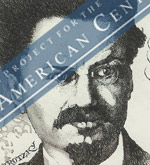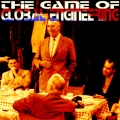 WWW,
2006 (Archived) - On September
8th, 2005, my article "Katrina
and the Politics of Disaster"
was published. The ink was not even dry as
the article's major contentions were
vindicated. No, this does not make me or
anyone else who saw things in advance
prophets. The article's accuracy can be
attributed more to common sense (a scarce
commodity these days) than anything else.
Playing solitaire will get you better
acquainted with yourself, but it will not
make you a great poker player. On the other
hand, watching Chris Ferguson or Phil Ivey
play a few hands will give you an idea of
how the game is played. The same principle
applies here. Studying the cases of elite
criminality and elitist tracts will give you
the uncanny ability to predict the future. WWW,
2006 (Archived) - On September
8th, 2005, my article "Katrina
and the Politics of Disaster"
was published. The ink was not even dry as
the article's major contentions were
vindicated. No, this does not make me or
anyone else who saw things in advance
prophets. The article's accuracy can be
attributed more to common sense (a scarce
commodity these days) than anything else.
Playing solitaire will get you better
acquainted with yourself, but it will not
make you a great poker player. On the other
hand, watching Chris Ferguson or Phil Ivey
play a few hands will give you an idea of
how the game is played. The same principle
applies here. Studying the cases of elite
criminality and elitist tracts will give you
the uncanny ability to predict the future.
Research reveals a certain method
employed by bluebloods throughout history to
consolidate power. A crisis is created by
government action or inaction. This crisis
leads to tremendous violence and social
upheaval that in turn has the population
screaming for a solution. The government
then plays the role of savior, presenting an
oppressive remedy to the problem. Society
gets onto a totalitarian trajectory as the
process is repeated over and over again. It
worked for the Illuminist-bred Jacobins in
France. It worked for the communists in
Russia. It worked for Nazis in Germany.
Today, it is working for the Neocons and
other elitists hidden behind the Bush
Administration.
In "Katrina and the Politics of
Disaster," evidence was explored that
seemed to suggest that warnings were ignored
and assistance was intentionally delayed,
causing the Katrina situation to intensify.
An atmosphere of lawlessness and anarchy
arose, causing people to call for Federal
intervention. We now find ourselves in the
midst of phase three as the government
presents the cure for our ills. Apparently,
that cure is a shot of totalitarianism that
involves a very long needle. On September
13th, Stewart Powell reported:
President Bush on Monday urged Congress
to examine whether the White House needs
stronger powers to deal with catastrophes
like Hurricane Katrina. Bush's backing for
the congressional inquiry raised the
possibility that lawmakers might expand
presidential authority to:
- Order mandatory civilian evacuations
- Dispatch U.S.-based armed forces for
emergency search-and-rescue operations
- Grant wider leeway for active-duty
U.S. military personnel to carry out
law enforcement operations. (No
pagination)
Perhaps the most disturbing aspect of the
government solution is the call for the
military to be used here at home. A
September 17th Associated Press
article went into this feature of the
President's plan:
President Bush's push to give the
military a bigger role in responding to
major disasters like Hurricane Katrina
could lead to a loosening of legal limits
on the use of federal troops on U.S. soil.
Pentagon officials are reviewing that
possibility, and some in Congress agree it
needs to be considered.
Bush did not define the wider role he
envisions for the military. But in his
speech to the nation from New Orleans on
Thursday, he alluded to the unmatched
ability of federal troops to provide
supplies, equipment, communications,
transportation and other assets the
military lumps under the label of
"logistics."
The president called the military
"the institution of our government
most capable of massive logistical
operations on a moment's notice." (No
pagination)
Defense Secretary Donald Rumsfeld has now
entered the picture, ready to step up
domestic militarization. The changes he will
suggest to the President may allow the
government to use natural disasters as a
pretext for tearing down longtime bulwark to
tyranny: the 1878 Posse Comitatus Act. The Associated
Press reported:
[Spokesman Lawrence] Di Rita said
Rumsfeld has not made recommendations to
Bush, but among the issues he is examining
is the viability of the Posse Comitatus
Act. Di Rita called it one of the
"very archaic laws" from a
different era in U.S. history that limits
the Pentagon's flexibility in responding
to 21st century domestic crises. (No
pagination)
Katrina has been used to make the
unthinkable now thinkable. The notion that
the military should be used to police
civilians would make the Founding Fathers'
skin crawl. Today, many Americans still
share that sentiment with the architects of
the Republic. However, most sit on their
hands believing the system of checks and
balances will remedy the problem. The branch
most likely to step in on our behalf should
bad legislation get passed is the Judicial.
Using the power of judicial review, the
Supreme Court can look at something the
President or Congress does and declare it
unconstitutional. However, the
Administration intends to short-circuit any
judicial attempts to block its acquisition
of power with what can only be described as
a Supreme Court coup. Integral to this coup
is chief justice nominee John G. Roberts.
Roberts has been a Bush political
operative since at least the controversial
2000 presidential election. In an article
for the Miami Herald, Gary Fineout
and Mary Ellen Klas elaborate:
U.S. Supreme Court nominee John G.
Roberts provided legal advice to Gov. Jeb
Bush in the weeks following the November
2000 election as part of the effort to
make sure the governor's brother won the
disputed presidential vote.
Roberts, at the time a private attorney
in Washington, D.C., came to Tallahassee
to advise the state's Republican
administration as it was trying to prevent
a Democratic end-run that the GOP feared
might give the election to Al Gore,
sources told The Herald. (No pagination)
The article continued:
Roberts, himself a noted constitutional
lawyer, and an unnamed law professor spent
between 30 and 40 minutes talking to Bush
in the governor's conference room, sources
told The Herald.
Roberts' perceived partisanship during
the recount has been enough for some
Democrats to suggest that his nomination
should be rejected by the U.S. Senate.
A spokesman for the governor confirmed
Wednesday that Bush met with Roberts
during the recount.
Roberts was "one of several
experts who came to Florida to share their
ideas," said spokesman Jacob
DiPietre. Roberts came "at his own
expense and met with Gov. Bush to share
what he believed the governor's
responsibilities were under federal law
after a presidential election and a
presidential election under dispute."
(No pagination)
For some, Robert's connection to the 2000
election make his nomination to the Supreme
Court very problematic. U.S. representative
Robert Wexler summed up critics' misgivings:
U.S. Rep. Robert Wexler, a Boca Raton
Democrat, seized on Roberts' participation
in the 2000 recount and suggested it
should be grounds for rejecting his
nomination. Wexler suggested the
nomination "threw salt on the wounds
of the thousands of Floridians whose
voting rights were disenfranchised during
the 2000 election.
"Judge Roberts worked to ensure
that George Bush would become president --
regardless of what the courts might
decide," Wexler said, relying on news
accounts that suggested Roberts gave the
governor advice on how the state
Legislature could name Bush the winner.
"And now he is being rewarded for
that partisan service by being appointed
to the nation's highest court."
(Fineout and Klas, No pagination)
Roberts was no doubt rewarded for his
services with a nomination to the Supreme
Court. When Rehnquist passed away,
nomination was upgraded to that of chief
justice. Roberts has jumped the first
hurdle, the Senate Judiciary Committee. All
that is left is to be confirmed by the
general senate. With a republican majority,
victory is almost a forgone conclusion. This
makes the Roberts situation even more
disturbing. Why? Unfortunately, the standard
for being a great chief justice is not
making upright and moral decisions. Instead,
the standard is the ability to bring
uniformity to the Court. Eisenhower
considered his decision to nominate Warren
one of his greatest mistakes. Given the
man's involvement in the cover-up of the
Kennedy assassination, Eisenhower's regret
seems justified. That notwithstanding, the
man is still considered one of this nation's
great chief justices for his ability to get
all the justices on the same page. As a
result of all this, chief justices have
learned to be great politicians and work to
bring uniformity to the Court, not to bring
about a moral outcome. Therefore, chief
justice Roberts would work to bring the
Court into lock step with the Bush
Administration's agenda.
However, to call Roberts merely a Bush
lackey would be inaccurate. It must be
understood that this Administration (like so
many administrations before it) is a front
for some elite faction. In a speech given by
Pulitzer Prize winning reporter Seymour
Hersh, the puppeteers behind the Bush
Administration were revealed: "One of
the ways -- one of the things that you could
say is, the amazing thing is we are been
taken over basically by a cult, eight or
nine neo-conservatives have somehow grabbed
the government" (No pagination). Those
on the left have misidentified this neocon
cult as anti-communist right-wingers. These
poor, misguided souls have failed to
recognize the difference between being
anti-communist and anti-Soviet. The cult of
neoconservatism is, in fact, a revival of
Trotskyism. Former neocon Michael Lind
revealed this fact in his article "A
Tragedy of Errors":
The fact that most of the younger
neocons were never on the left is
irrelevant; they are the intellectual
(and, in the case of William Kristol and
John Podhoretz, the literal) heirs of
older ex-leftists. The idea that the
United States and similar societies are
dominated by a decadent, postbourgeois
"new class" was developed by
thinkers in the Trotskyist tradition like
James Burnham and Max Schachtman, who
influenced an older generation of neocons.
The concept of the "global democratic
revolution" has its origins in the
Trotskyist Fourth International's vision
of permanent revolution. The economic
determinist idea that liberal democracy is
an epiphenomenon of capitalism, promoted
by neocons like Michael Novak, is simply
Marxism with entrepreneurs substituted for
proletarians as the heroic subjects of
history. (No pagination)
None other than the godfather of
neoconservatism himself, Irving Kristol,
vindicates Lind's allegations. In his book Neoconservatism:
The Autobiography of an Idea, Kristol
writes: "I regard myself lucky to have
been a young Trotskyist and I have not a
single bitter memory" (13). Left-wing
activists love to charge the neocons with
being fascistic anti-communists.
Nevertheless, the neocons' crusade to tear
down the Soviet Union and Soviet-connected
regimes stemmed from the fact that they felt
betrayed by Uncle Joe. Stalin had made the
mistake of attacking their idol: Trotsky.
With the neocons in control, America is
sure to continue on a socialist and statist
trajectory. Future catastrophes, both
man-made and natural, will provide the
pretext for all of this. A Supreme Court
with Roberts as its chief justice will
declare the Administrations' actions
completely legal and constitutional. All the
while, the very document that is supposed to
be guiding the Court's decisions, the
Constitution, will be burning.
Sources Cited
Paul D. Collins has
studied suppressed history and the shadowy
undercurrents of world political dynamics
for roughly eleven years. In 1999, he
completed his Associate of Arts and Science
degree. He is working to complete his
Bachelor's degree, with a major in
Communications and a minor in Political
Science. Paul has authored another book
entitled The
Hidden Face of Terrorism: The Dark Side of
Social Engineering, From Antiquity to
September 11.
|

































 WWW,
2006 (Archived) -
WWW,
2006 (Archived) -